Insights
Global guide Time Out ranks Manchester as world’s third greatest city
Global guide Time Out has ranked Manchester at third place among the world’s greatest cities, acknowledging its resilience and achievements during the pandemic.
Manchester sits behind only first-place San Francisco and runner-up Amsterdam in Time Out’s list of the 37 best cities in the world in 2021.
Alongside questions about food and culture, Time Out’s poll of 27,000 city-dwellers sought opinions on factors core to the resilience of major cities during the pandemic and beyond, including community projects, green space and sustainability.
The publication states that it was interested in “not only thinking about the now, but also the future”.
Time Out’s poll mirrors many of the themes at the heart of the Greater Manchester Economic Vision, which outlines how Greater Manchester is now poised to lead UK economic recovery with a plan for innovation, green growth and addressing inequalities.
In an article for Time Out, Mayor of Greater Manchester and GM LEP board member Andy Burnham, explained why he thinks Manchester is the greatest city in the UK, emphasising the city’s sense of community, engagement with the Black Lives Matter movement, support for the homeless, music, and its response to the pandemic.
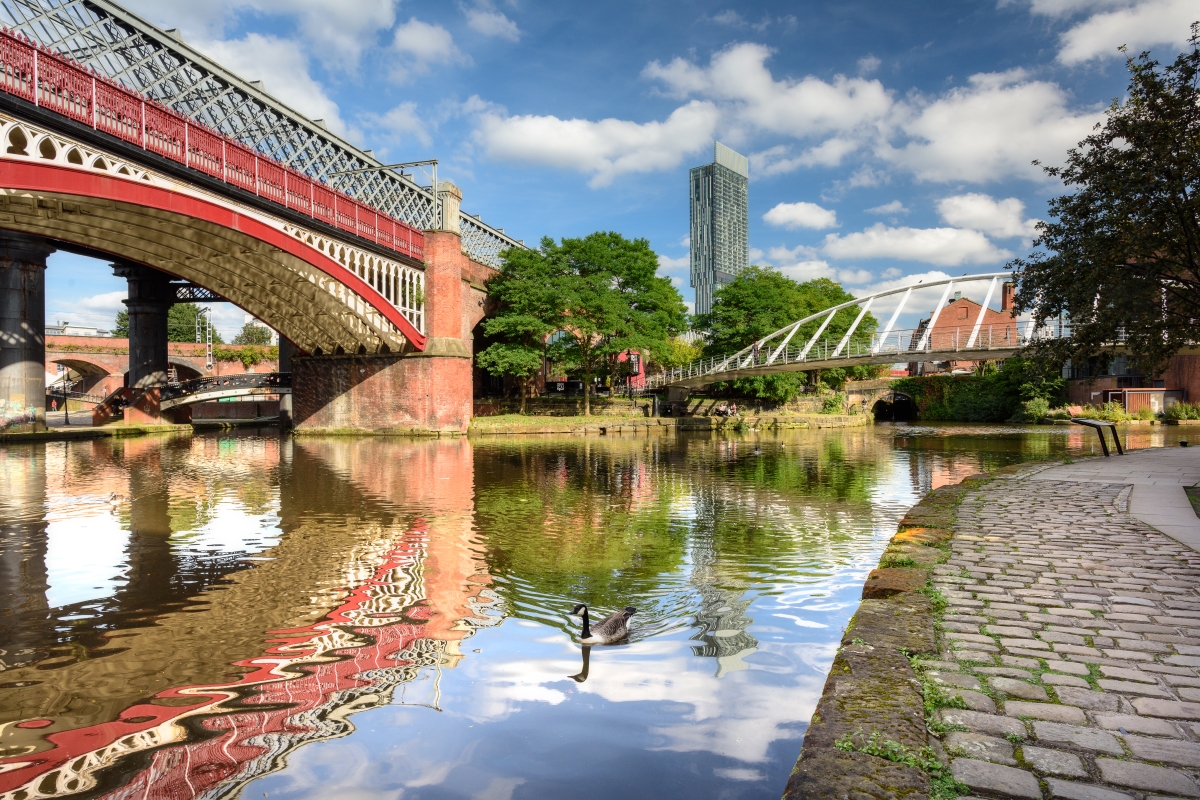
Lou Cordwell, Chair of GM LEP, said:
“The people and culture of Greater Manchester are among its greatest assets and it’s fantastic that they are at the heart of TimeOut’s decision to rank Manchester in third place among the world’s greatest cities.
“This honour means that many more people will now be made aware that Greater Manchester is a brilliant place to live, visit and invest, supporting us in achieving the ambitions at the heart of the Greater Manchester Economic Vision.”
Cllr Elise Wilson, GM LEP vice chair and GMCA economy portfolio lead, said:
“A top three ranking among TimeOut’s greatest cities in the world is a hugely significant achievement for Greater Manchester, reflecting the characteristics which make it such an incredible place to live, work, study and invest.
“TimeOut’s research acknowledges the resilience, culture and sense of community which have been evident throughout the pandemic and during other challenging moments in our recent history. These strengths are core within the Economic Vision for Greater Manchester, which seeks to ensure that no-one will be left behind as we tackle inequalities and build a fairer and greener economy.”
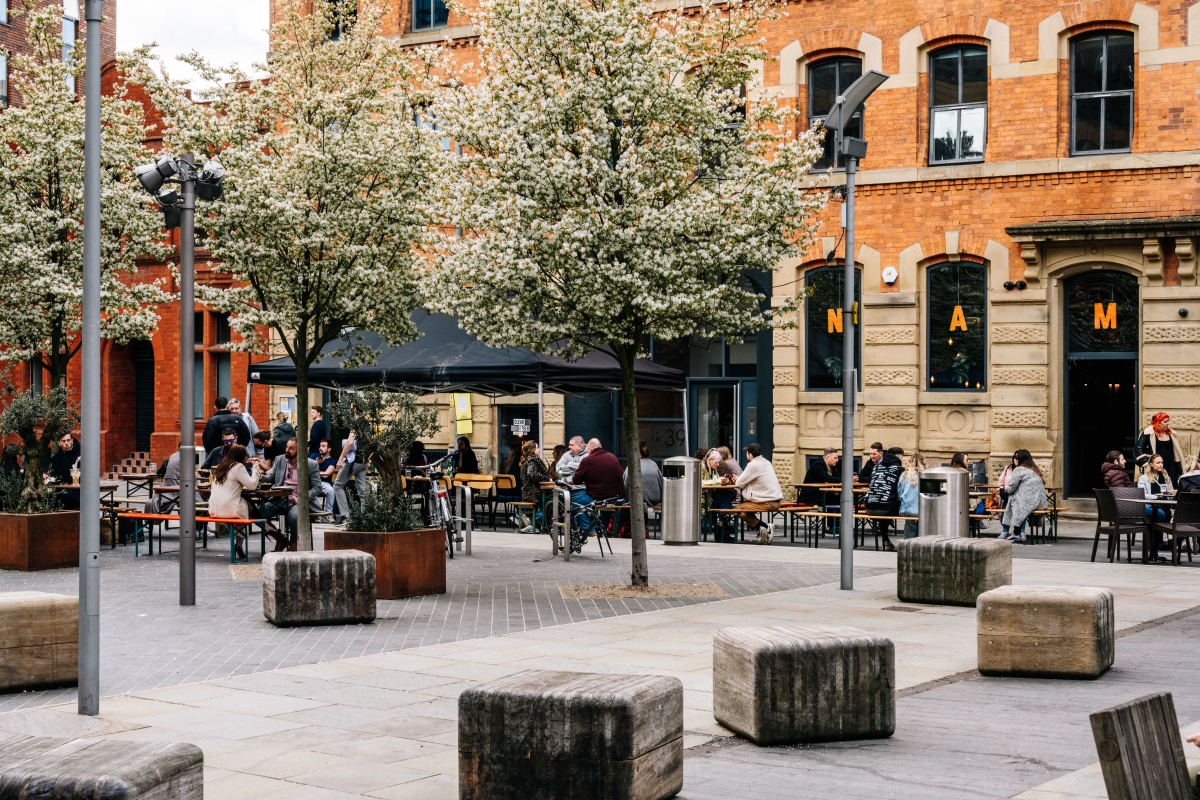
Mike Blackburn, GM LEP board member and Chair of Marketing Manchester, said:
“It’s incredibly exciting that Time Out has recognised Greater Manchester’s strengths as a region of culture, creativity and resilience, ranking Manchester in third place among the world’s greatest cities.
“The pandemic has presented incredible challenges, particularly for the tourism and hospitality sector. With the economy now reopen, we cannot wait to welcome people from across the world as they discover the city-region for themselves.”
Sheona Southern, Managing Director of Marketing Manchester, said:
“We’re delighted that Time Out has recognised Manchester as the third best city in the world to visit in 2021. There has never been a better time to come and explore the city, with a host of exciting new attractions, hotels, and dining options recently opened, alongside a programme of world-class cultural and sporting events taking place throughout the year.
“Like many destinations globally, Greater Manchester has felt the devastating effects of Covid-19, however, we are now in a strong position for recovery, with our top 21 things you can do in 2021 to look forward to, including new outdoor experiences, rich new cultural developments, refreshed and refurbished hotels; all of which expand on Greater Manchester’s already vibrant visitor offer – we are excited to welcome visitors back to offer our famous Mancunian hospitality.”
GCHQ and HOST launch ground-breaking innovation programme to help North West businesses develop cutting-edge technologies
GCHQ, the UK’s intelligence and cyber agency, is looking for five ambitious businesses to join its pioneering innovation programme to apply trailblazing technologies to national security challenges.
The GCHQ Innovation Co-Lab, developed in partnership with HOST, the Home of Skills & Technology, based in Media City, Salford, is aimed at UK-based digital companies or a consortium of companies with innovative approaches to technology and analytics, or a vision to reach alternative markets for their products or service.
Businesses can apply to take part in specific challenges as part of the Co-Lab. These include:
- Dealing with uncertainty: Products and services which utilise open-source information to help people make sense of current events and plan for the future; and
- Re-imagining morse code: Technology that will help improve automated translation and transcriptions, supported by advances in Artificial Intelligence and Machine Learning – re-thinking traditional morse code technology for the future.
Another challenge is a wild card option, where businesses will have the rare opportunity to showcase to GCHQ an innovative and unique approach to technology that helps shape the future for the better.
While applications are open to all, they are particularly welcome from entrepreneurs in the North West, who are from diverse and underrepresented backgrounds.
Kate, GCHQ, Head of Research and Engineering in Manchester, said:
“We’re excited to be collaborating with the thriving technology ecosystem in Greater Manchester, connecting diverse entrepreneurs and creative technologists with the mission of GCHQ to bring fresh perspectives to our challenges.”
Mo Isap, CEO of IN4.0 Group, operator of HOST, said:
“As a dedicated innovation partner of GCHQ, we are privileged to continue to support founders with this specialist programme, ensuring innovation is inclusive and accessible for businesses and individuals across the region and the UK.
“The Co-Lab offers emerging technology businesses access to technologists and innovators from GCHQ as well as valuable innovation and business growth support from the HOST community and its industry partners.”
The programme will be delivered in a hybrid style, both in-person and virtually over five months with companies benefitting from collaboration with technologists and innovators from GCHQ and invaluable mentoring from innovation hub HOST and its investor networks.
This follows two previously successful innovation programmes that involved participants such as Bellrock Technology, which was included in the G-Cloud 12 framework as a data analytics supplier for the UK government. As well as Journey Protector, a developer of technology that helps prevent cargo theft and human trafficking in the logistics industry, led by CEO Anne Lawlor, which has secured significant funding since completing the programme.
Cyber security is among the strengths of Greater Manchester’s fast-growing £5bn digital ecosystem, influencing GCHQ’s decision to open a base in Manchester city centre.
The Greater Manchester Local Industrial Strategy and Economic Vision include plans to build on Greater Manchester’s position as a leading European digital city-region, building assets in cyber security and other sub-sectors of the digital economy.
The deadline for applications is 13 September, with successful applicants being announced by the end of October, and the programme beginning in November. For further information, visit: https://www.hostsalford.com/programmes/the-gchq-innovation-co-lab-2021/
This programme does not offer a specific solution or product validation, or cyber security solution expertise or validation. We encourage applications to the NCSC-led NCSC for Startups for companies looking to gain traction in the cyber security sector or seeking cyber security expertise.
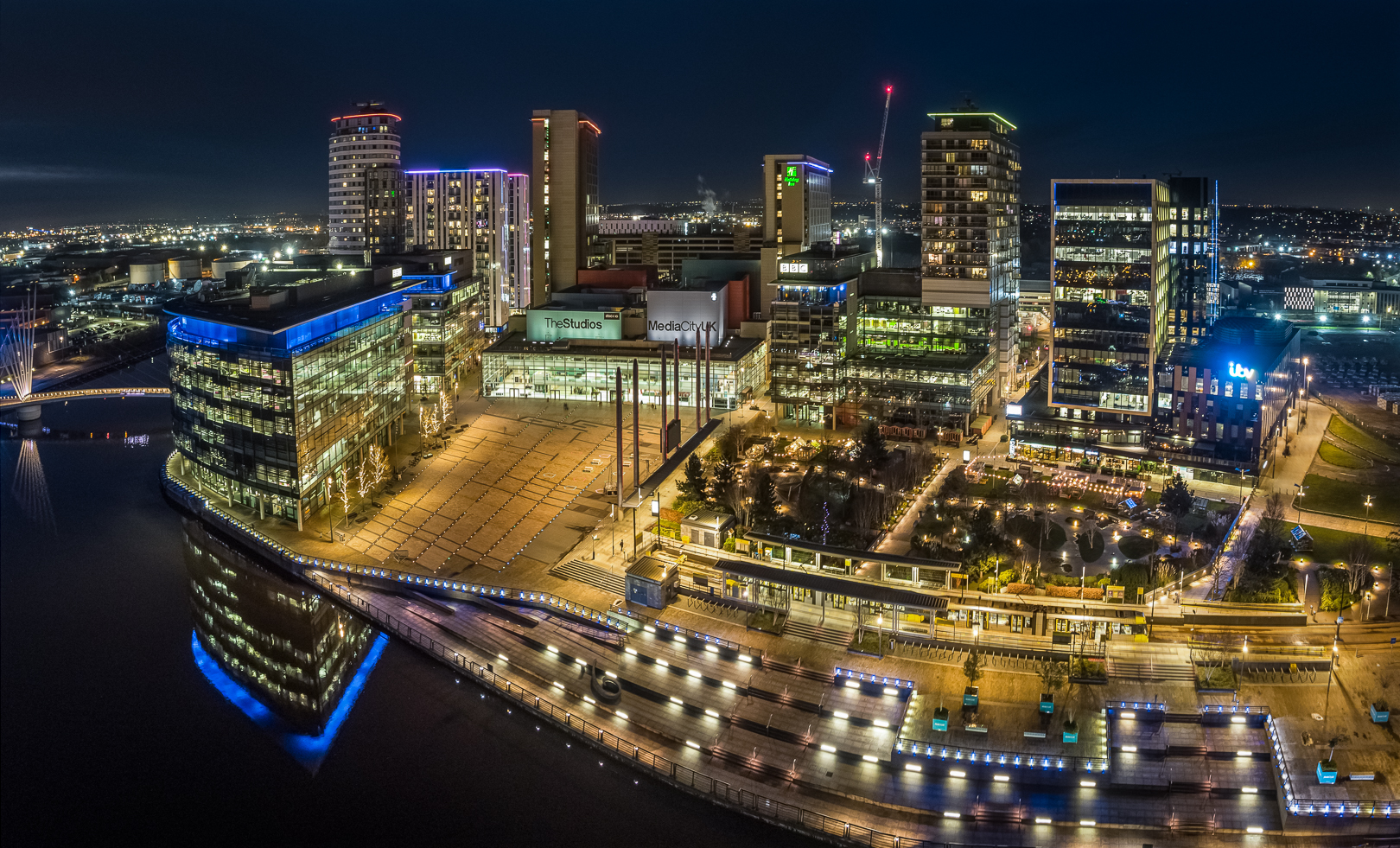
MediaCityUK
Plans for Manchester’s first hydrogen fuel hub moving forward
Planning application submitted by Trafford Green Hydrogen
Plans for Greater Manchester’s first low-carbon hydrogen fuel hub have moved a step closer with the submission of a planning application for the hub at the Trafford Low Carbon Energy Park, which is being developed by Carlton Power subsidiary, Trafford Green Hydrogen Ltd.
The pioneering scheme, announced in March 2021 and set to be one of the largest in the UK to be developed, will provide businesses in the Greater Manchester region – for example, those with transport fleets or with heating requirements – with easy access to hydrogen fuel. Hydrogen is expected to play a major part in reducing the UK’s CO2 emissions, helping the country’s journey towards Net-Zero.
In the commercial transport sector, government support for hydrogen fuel is expected to make it easier for transport fleet operators to make the switch from diesel.
The proposed 200MW commercial hydrogen hub at Trafford Park is being brought forward following the signature of a Memorandum of Understanding between Carlton Power and local stakeholders, comprising Manchester Metropolitan University, Greater Manchester Combined Authority (GMCA), Trafford Council, Cadent Gas and Electricity North West.
The planning application, made by Trafford Green Hydrogen Ltd, coincides with the upcoming publication of the UK’s Government’s Hydrogen Strategy. The Trafford Green Hydrogen project is Carlton Power’s first hydrogen scheme and it has plans to develop as many as 10 other similar projects in the UK over the next 2-5 years.
Subject to the outcome of the planning process and financing, the construction of the hydrogen hub at the Trafford Low Carbon Energy Park will start early next year and enter commercial operation in 2023. The proposed hydrogen hub facility will produce and store hydrogen at scale and help integrate renewable energy on a regional scale through the storage of solar and wind energy. It will be located next to one of Europe’s largest energy storage facilities based on liquid air storage: the 250MWh Carlton Highview Power project (announced in June 2020).
Keith Clarke, Chief Executive of Carlton Power, said:
“The hydrogen hub is an important component of our Trafford Low Carbon Energy Park. Trafford Park is set to become an exemplar of clean energy technologies being put to commercial use, placing Greater Manchester at the forefront of the green revolution and the UK’s energy transition.”
The planning application will be determined by Trafford Council, the local planning authority. Further information can be found at www.traffordgreenhydrogen.co.uk.

SME manufacturers prepare for the challenges of a digital future with Made Smarter Leadership Programme
Digital leaders in Greater Manchester are now among 60 with the vision and the skills to pursue smarter manufacturing through Made Smarter’s innovative Leadership Programme.
Five cohorts of managers and directors at SME manufacturing companies have now completed the Made Smarter Leadership Programme through the Lancaster University Management School (LUMS), the University of Liverpool (UoL) and Manchester Metropolitan University (MMU).
The programme encourages current and future leaders to develop a new way of looking at their business and create a clear strategy to enable the adoption of digital technology, including how that can drive the net zero agenda.
It uses a blend of workshops delivered by academics and experts in digital and leadership, site visits to SME manufacturers who are already on the journey of adopting digital technology, facilitated-learning sessions, and special project ‘sprints’ to test new ideas.
The programme also uses peer-to-peer coaching to create a trusted network of leaders, many of whom have remained in close contact.
Among the trailblazing businesses to embark on the programme are: Arden Dies (Stockport), Eurofabs (UK) Ltd (Rochdale), DRM Industrial Fabrics (Bury), Fintek (Ramsbottom), and Heatsense Cables (Rochdale).
With 60 SME leaders now empowered to transform their businesses, manufacturers across the North West are now being encouraged to register their interest for the next two cohort intakes, starting on October 7 and November 10 at Lancaster University.
Donna Edwards, Director of the Made Smarter Adoption Programme in the North West, said:
“I am delighted that the Leadership Programme has helped create 60 new digital leaders by giving them time out of their business to reflect on the bigger picture and share ideas and experiences alongside their peers in manufacturing, and then return to their own business and develop a digital strategy to create growth and efficiencies.
“They are among hundreds of manufacturers in the region grasping the opportunities offered by Made Smarter which include expert, impartial technology advice, digital transformation workshops to help take that first step to transform a business, funded digital technology internships, and support with technology adoption projects.
“I would encourage SME manufacturers to make contact with Made Smarter to find out how we can help with leadership development, skills, and how to adopt technology the right way.”
The programme, which takes place over eight months, includes seven workshops led by both academics delivering leading edge thinking and business practitioners demonstrating adoption in real business settings.
Delegates will also embark on ‘sprints’ where they will test their ideas with other business leaders to build engagement and learn from each other.
Virtual site visits to SME manufacturers already driving digital in their companies included Runcorn-based Hosokawa Micron Ltd, a manufacturer and supplier of powder processing systems and equipment which has transformed its production performance through the application of digital technologies, and Veka Plc, a Burnley-based manufacturer of PVCu window systems.
Sarah Poynter, Operations Manager at Arden Dies, a die and tooling manufacturer based in Stockport, said:
“Through the programme I was able to identify several clear opportunities to make some significant changes which would bring benefit to the business. Furthermore, I was able to use the sprint approach to accelerate making those ideas a reality.
“One sprint was all about addressing a number of significant production issues relating to an existing product line which demanded very short turnaround times, high volumes and quality specifications. By automating large parts of the process we were able to accelerate the end to end process.
“While some of the sprints are still in play, they have been game-changing through reduced wastage, increased agility, quality and improved delivery performance.”
Registration for the next Leadership Programme is now open. For more information or to apply for your place visit madesmarter.uk
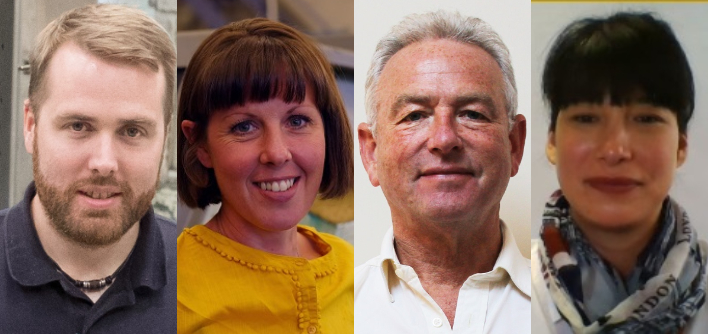
L-R: Jamie Phillips (Fintek) Sarah Poynter (Arden Dies) Jeremy Kemsley Pein (Heatsense Cables) and Andrea Kuehne (DRM Industrial Fabrics)
Manchester model of cancer care to support treatment in Kenya
Prevention and management of cancer in Kenya will be improved through a partnership between Kenyatta University Teaching Referral and Research Hospital (KUTRRH) and the University of Manchester, Christie NHS Foundation Trust and Manchester University NHS Foundation Trust.
This will see the promotion of KUTRRH as a regional hub for cancer treatment, linking to eleven regional cancer centres across Kenya and The Christie hospital through telemedicine. It will also monitor clinical outcomes to support innovation and improvement in cancer treatment.
The hub and spoke model will mirror the clinical service in Greater Manchester, which has seen cancer outcomes improve faster than anywhere else in the UK.
The Christie and Manchester University Foundation Trust will also provide training places for the current healthcare workforce to obtain specialised oncology training and an understanding of how the hub and spoke model for cancer care services works in Greater Manchester.
New arrangements for cancer care are part of a healthcare partnership between Kenya and the UK government which has been strengthened through the signing of a Memorandum of Understanding (MoU).
The MoU, signed at the Royal College of Physicians by Health and Social Care Secretary Sajid Javid and Kenya’s Cabinet Secretary for Labour Cooperation, Simon Chelugi, was also attended by President Uhuru Kenyatta.
To mark the launch of the Alliance, The University of Manchester and The Christie will establish two scholarships each, the President Jomo Kenyatta scholarships to help support Kenyans to undertake Masters level studies at the University or a clinical fellowship at The Christie.
The Alliance’s first grant application, which is submitted to National Institute for Health Research, seeks to establish such a service for squamous cell carcinoma of the oesophagus, a poorly understood cancer that is common in Kenya.
Professor Graham Lord, Vice-President and Dean of the Faculty of Biology, Medicine and Health at The University of Manchester said:
“Not only do we strive for research and teaching excellence like all universities but we also have a third and unique goal around social responsibility. We want to see our research and teaching make a difference, locally in Manchester, nationally in the UK and internationally.
“It is now time for us to build on this success and take on bigger challenges and leading and successfully delivering the Kenya UK Healthcare Alliance is one of these challenges, as we seek to make a difference to the healthcare system of an important strategic ally to the UK through clinical services, research and education.
“So as an institution with long-standing links with Kenya, we look forward to working with the country to developing a modern and resilient healthcare workforce capable of dealing with the rising tide of all forms of non-communicable diseases in the country.”
Health innovation is one of the frontier sector strengths identified by Greater Manchester’s Local Industrial Strategy and Economic Vision.
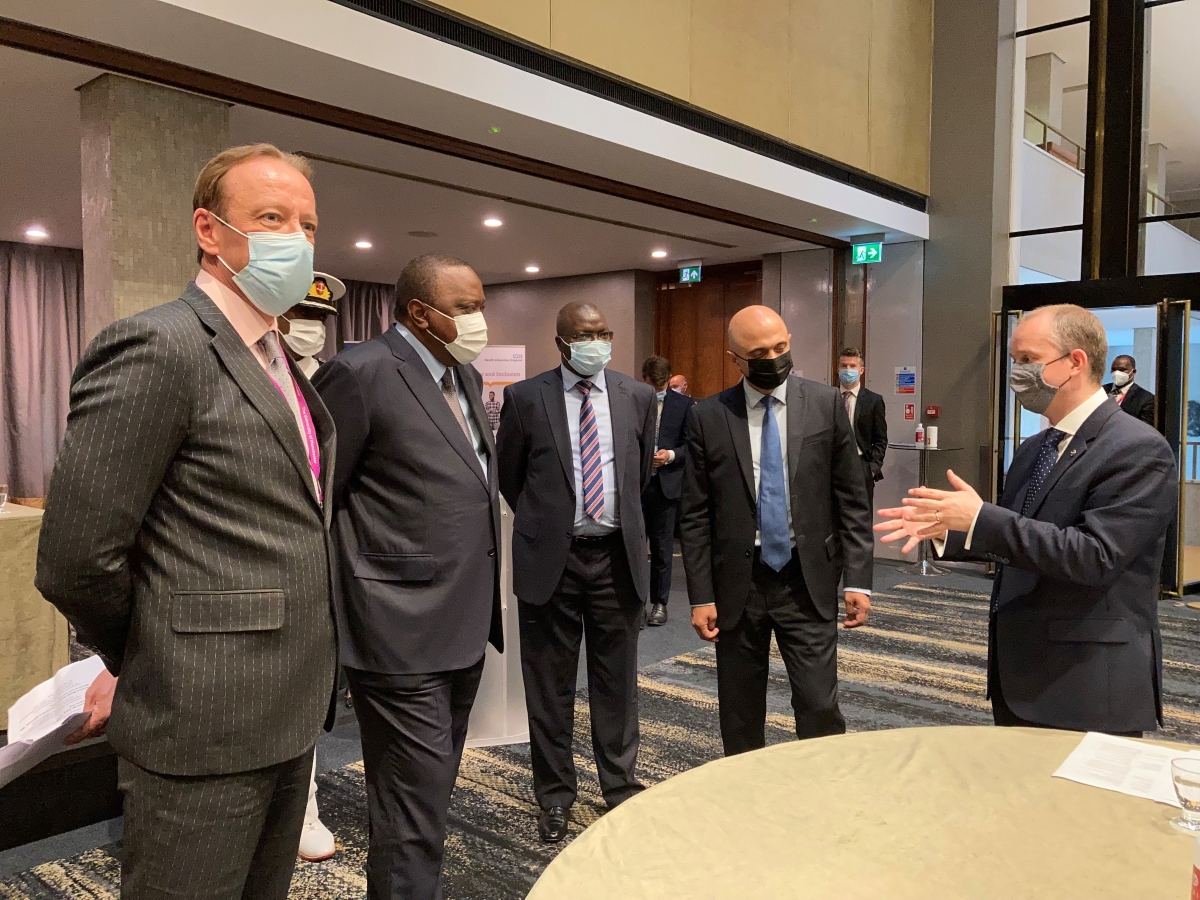
Kenyan state visit with Professor Graham Lord
German ambassador ‘keen to explore closer cooperation’ with Greater Manchester
Germany’s ambassador to the UK says he is keen to explore closer cooperation with Greater Manchester following a two-day tour of innovative businesses and organisations within the city-region.
Andreas Michaelis travelled to Greater Manchester this week at the invitation of Greater Manchester Mayor and GM LEP board member Andy Burnham.
Germany is a key strategic partner and integral to Greater Manchester’s International Strategy.
The city-region has the ambition to become Germany’s strongest economic partner in the UK outside London, building on a strong relationship.
The German ambassador started his tour at MediaCity in Salford, visiting production studio dock10 – the UK’s largest multi-camera studio – and Host, the Home of Skills and Technology in Salford, where he met Mayor of Salford Paul Dennett and Mo Isap, CEO of IN4.0 Group, operator of HOST.
Commenting on the infrastructure at MediaCity, he wrote on Twitter:
“This morning I was at MediaCityUK in Salford – impressive architecture, and intriguing concept having so many media giants in one district.
“Coming from Germany, where the media is not just located in the capital, I know of the advantages of this approach.”
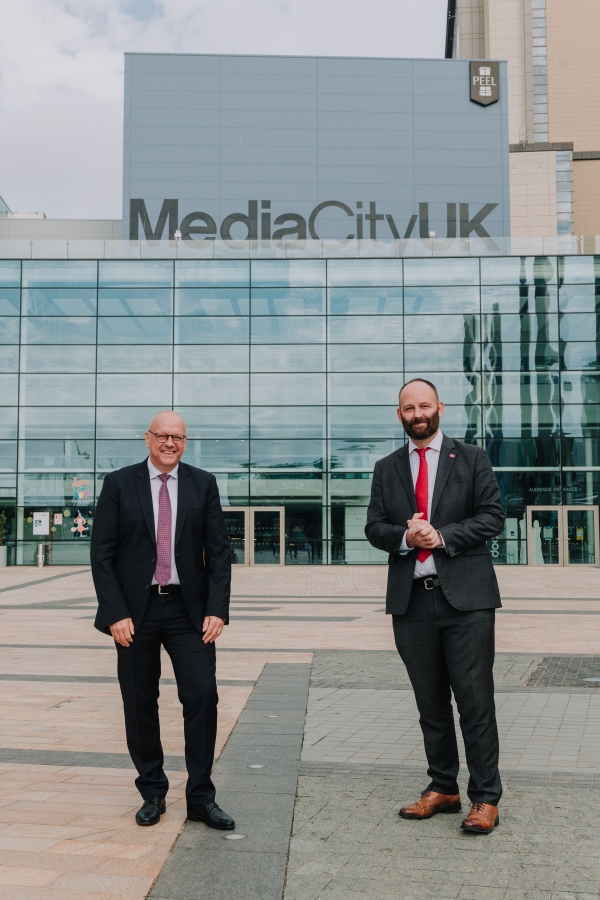
Ambassador Andreas Michaelis and Mayor of Salford Paul Dennett
He later met Greater Manchester Mayor and GM LEP board member Andy Burnham and used social media to demonstrate his awareness of Greater Manchester culture and hopes of closer economic ties.
Posting on Twitter, he added:
“Enjoyed a great meeting with Mayor Andy Burnham. Discussed business development and links with Germany. Impressed by the energy of the Mayor and his team. Being in Manchester we raised football and Joy Division, too.”
Mr Michaelis was presented with a Manchester City shirt signed by the Blues’ German footballer Ilkay Gündogan.
The German ambassador later enjoyed a walking tour of Greater Manchester and visited the historic Chetham’s library, where he sat at the desk where Karl Marx and Friedrich Engels worked together.
He said that he was “following Germany traces in Manchester – at the desk of Karl Marx & Friedrich Engels and exploring the magnificent, annotated copy of the Nuremberg Chronicle by Hartman Schedel at Chetham’s. Both objects bear vivid testimony of the centuries-old close ties between our countries.”

Greater Manchester Mayor Andy Burnham and Ambassador Andreas Michaelis
During day two of the German ambassador’s tour of Greater Manchester, he got to see innovative businesses and organisations working in Stockport and Manchester, including engineering business WEFL and musicMagpie, where he met GM LEP board member Cllr Elise Wilson, also the leader of Stockport Council, and the council’s Chief Executive Pam Smith.
He also met representatives of the German company BASF, which has a base in Stockport.
The ambassador also visited Manchester for a meeting with Manchester city council leader Sir Richard Leese – also a GM LEP board member – and toured the Graphene Engineering Innovation Centre, where he learned about some of the new applications for #graphene and other 2D materials that are being rapidly prototyped and developed for commercial use.
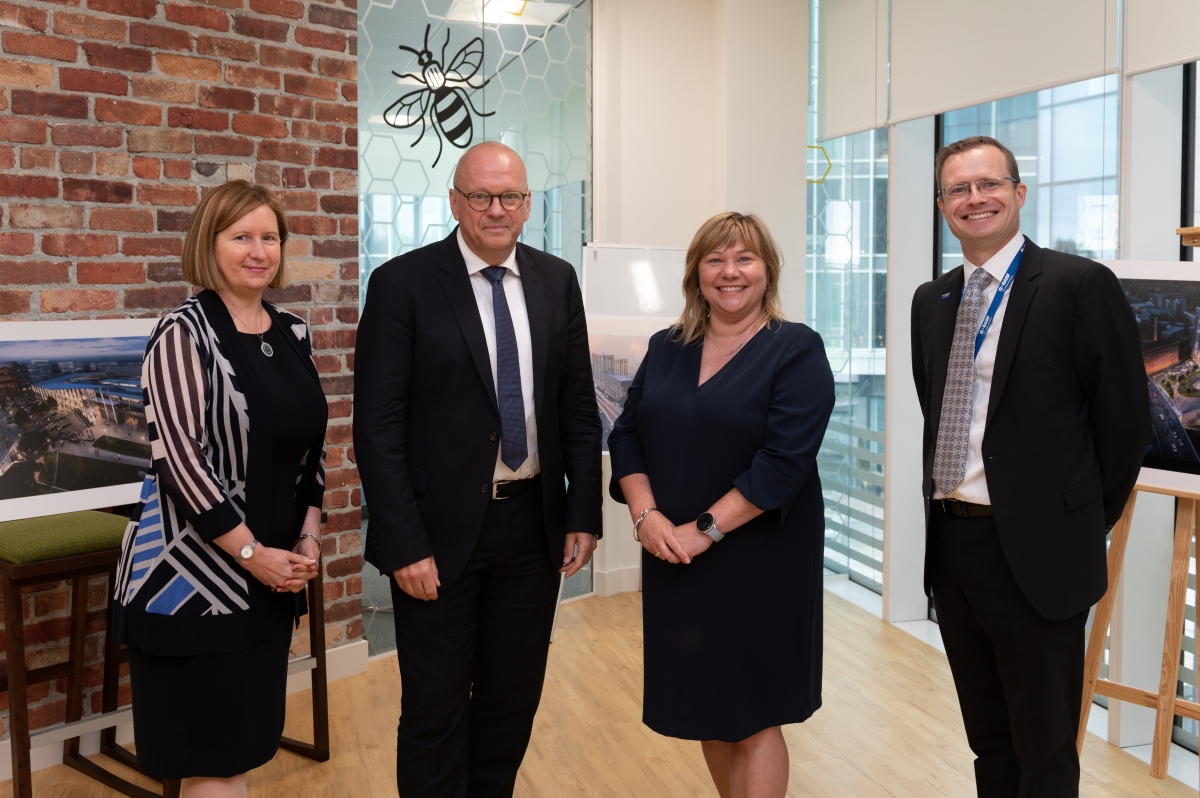
Meeting with Stockport Metropolitan Borough Council
The visit also provided an opportunity for the ambassador to hear about the Greater Manchester Economic Vision and discuss Innovation Greater Manchester with Richard Jones, Professor of Materials Physics and Innovation Policy at the University of Manchester.
Commenting on the visit to Greater Manchester via social media as he returned to London, Mr Michaelis thanked Greater Manchester Mayor Andy Burnham for hosting the visit and said:
“Manchester is a dynamic hub for innovation. With a strong industrial tradition & commercial base, it has attracted an impressive number of companies. Keen to explore future cooperation between Germany & Manchester region.”
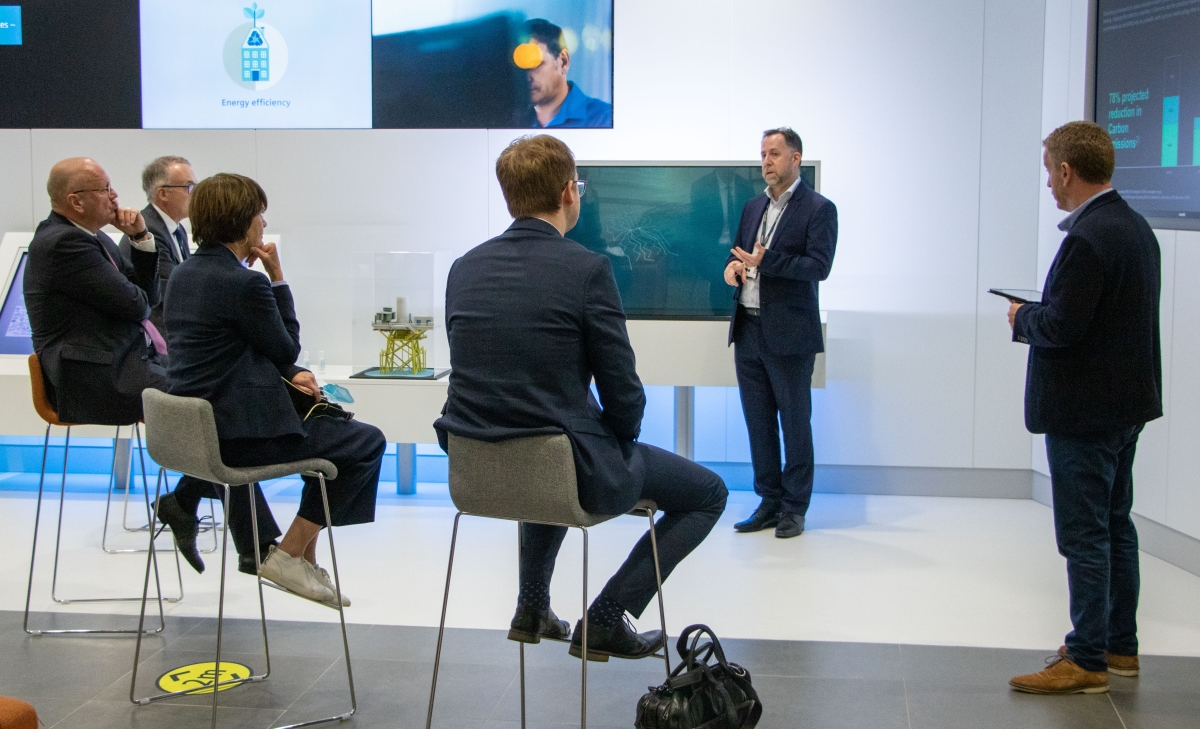
Visiting Siemens headquarters in Manchester
